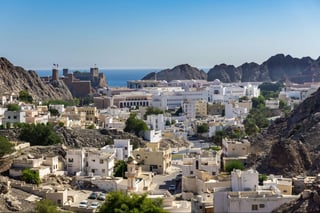Zero income tax countries, enticing for tax optimization, rely on alternative income streams and attract residents and businesses. While tax benefits exist, adjusting to distinct legal systems and living costs is essential for expatriates. Expert international tax and financial planning advice is valuable for seamless navigation.

Economic rationale for no income tax
There are a number of economic factors that can contribute to a nation's ability to forgo income tax. These include:
- Reliance on natural resource wealth: Countries with abundant natural resources, such as oil, gas, or minerals, may be able to generate sufficient government revenue from resource royalties or extraction taxes. This can allow them to reduce or eliminate income taxes without experiencing a significant shortfall in public finances.
- Tourism revenue: Countries that are popular tourist destinations can generate significant revenue from tourism taxes, such as hotel taxes, airport taxes, and value-added taxes (VAT). This can help to offset the need for income taxes.
- Financial services: Countries that have a well-developed financial services sector may be able to generate revenue from financial transaction taxes or stamp duties. This can help to reduce or eliminate the need for income taxes.
In addition to these specific economic factors, there are a number of general economic principles that can support a no-income-tax policy. These include:
- Laffer curve theory: The Laffer curve posits that increasing tax rates can eventually decrease tax revenue due to reduced economic activity, suggesting lower tax rates may boost revenue.
- Tax competition: In a globalised economy, countries are increasingly competing with each other to attract businesses and investment. One way that countries can compete is by offering lower taxes. As a result, countries with high income tax rates may find that they are at a disadvantage in attracting businesses and investment.
Countries with no income tax
There are several countries that currently have zero-income tax burden. Here are ten of them and a brief explanation of each:
- Bahamas
The Bahamas is an island nation located in the Atlantic Ocean. It is known for its beautiful beaches and crystal-clear waters, which make it a popular tourist destination. In addition to tourism, the Bahamas is also a tax haven, which means that it offers favourable tax policies to individuals and businesses. The Bahamas has no income tax, no capital gains tax, and no corporate tax, making it an attractive destination for those looking to minimise their tax burden.

- Bermuda
Bermuda is a British Overseas Territory located in the North Atlantic Ocean. It is known for its pink sand beaches and turquoise waters. Like the Bahamas, Bermuda is also a tax haven, which means that it offers favourable tax policies to individuals and businesses. Bermuda has no income tax, no capital gains tax, and no inheritance tax, making it an attractive destination for those looking to minimise their tax burden.

- Cayman Islands
The Cayman Islands is a British Overseas Territory located in the Caribbean Sea. It is known for its offshore financial industry and is home to many banks and investment firms. The Cayman Islands is also a tax haven, with no income tax, no capital gains tax, and no corporate taxes. This makes it an attractive destination for businesses and individuals looking to reduce their tax burden.

- Monaco
Monaco is a small independent city-state located on the French Riviera. It is known for its luxury casinos, yacht-lined harbour, and Formula One Grand Prix. Monaco is also a tax haven, with no income tax, no capital gains tax, and no wealth tax. This makes it an attractive destination for wealthy individuals and businesses.

- United Arab Emirates
The United Arab Emirates (UAE) is a federation of seven emirates located in the Middle East. It is known for its oil reserves, skyscrapers, and luxurious shopping malls. The UAE has no federal income tax, no capital gains tax, and no value-added tax (VAT). However, some individual emirates have their own tax policies.

- Brunei
Brunei is a small country located on the island of Borneo in Southeast Asia. It is known for its rainforests, beaches, and oil reserves. Brunei has no income tax, no capital gains tax, and no inheritance tax, making it an attractive destination for those looking to minimise their tax burden.

- Oman
Oman is a Middle Eastern country located on the southeastern coast of the Arabian Peninsula. It is known for its beautiful beaches, rugged mountains, and historic forts. Oman has no income tax, no capital gains tax, and no gift tax, making it an attractive destination for businesses and individuals looking to minimise their tax burden.

- Qatar
Qatar is a small country located on the northeastern coast of the Arabian Peninsula. It is known for its futuristic skyline, luxurious hotels, and shopping malls. Qatar has no income tax, no capital gains tax, and no wealth tax, making it an attractive destination for businesses and individuals looking to minimise their tax burden.

- Saudi Arabia
Saudi Arabia is a Middle Eastern country located on the Arabian Peninsula. It is known for its oil reserves, Islamic heritage, and modern architecture. Saudi Arabia has no income tax, no capital gains tax, and no gift tax, making it an attractive destination for businesses and individuals looking to minimise their tax burden.

- Kuwait
Kuwait is a small country located on the northern coast of the Arabian Peninsula. It is known for its modern architecture, luxury shopping malls, and oil reserves. Kuwait has no income tax, no capital gains tax, and no gift tax, making it an attractive destination for businesses and individuals looking to minimise their tax burden.

Global distribution of no-income-tax jurisdictions
No-income-tax jurisdictions are found in a variety of geographic regions and have a range of economic characteristics. Some of the key geographic regions with no-income-tax jurisdictions include:
- Caribbean: The Caribbean is home to a number of no-income-tax jurisdictions, such as the Bahamas, Cayman Islands, Bermuda, Turks and Caicos Islands, and British Virgin Islands. These jurisdictions are popular tourist destinations and financial centres.
- Middle East: The Middle East is home to a number of no-income-tax jurisdictions, such as the United Arab Emirates (UAE), Bahrain, and Qatar. These jurisdictions are major oil producers.
- Pacific: The Pacific is home to a number of no-income-tax jurisdictions, such as Vanuatu and Nauru. These jurisdictions are popular tourist destinations and offshore financial centres.
In terms of economic characteristics, no-income-tax jurisdictions often have the following features:
- Reliance on natural resources or tourism: Many no-income-tax jurisdictions are reliant on natural resources or tourism for government revenue. For example, the UAE is a major oil producer, while the Bahamas is a popular tourist destination.
- Well-developed financial services sector: Some no-income-tax jurisdictions have a well-developed financial services sector. For example, the Cayman Islands is a major offshore financial centre.
- Small population: No-income-tax jurisdictions often have a small population. This can make it easier for the government to generate sufficient revenue from sources other than income taxes.
Taxpayer implications
Living in a no-income-tax jurisdiction can have both advantages and disadvantages for individuals, businesses, and investors.
Advantages
- Increased disposable income: Individuals living in no-income-tax jurisdictions have more money to spend, save, or invest.
- Reduced operating costs: Businesses in no-income-tax jurisdictions do not have to pay corporate income taxes. This can reduce their overall operating costs and make them more competitive.
- Increased investment returns: Investors can earn higher returns on their investments in no-income-tax jurisdictions. This is because they do not have to pay capital gains taxes on their investment gains.
Disadvantages
- Reduced access to government services: No-income-tax jurisdictions often have lower levels of government spending on public services such as education, healthcare, and infrastructure.
- Potential for higher indirect taxes: No-income-tax jurisdictions may rely on indirect taxes such as value-added taxes (VAT) to generate government revenue. This can result in a higher overall tax burden for individuals.
- Potential for increased risk: Investments in no-income-tax jurisdictions may be riskier than investments in other jurisdictions. This is because there may be less regulatory oversight of financial markets in these jurisdictions.
The decision of whether or not to reside in a no-income-tax jurisdiction is a complex one. Individuals, businesses, and investors should carefully consider the advantages and disadvantages before making a decision.
Comparative analysis of no-income-tax jurisdictions
No-income-tax jurisdictions use a variety of different approaches to taxation and public finance. Some of the key differences between these jurisdictions include:
- Reliance on natural resources or tourism: Some no-income-tax jurisdictions are reliant on natural resources or tourism for government revenue. For example, the United Arab Emirates (UAE) is a major oil producer, while the Bahamas is a popular tourist destination. These jurisdictions can generate significant revenue from resource royalties, tourism taxes, and other indirect taxes.
- Well-developed financial services sector: Some no-income-tax jurisdictions have a well-developed financial services sector. For example, the Cayman Islands is a major offshore financial centre. These jurisdictions can generate revenue from financial transaction taxes or stamp duties.
- Small population: Some no-income-tax jurisdictions have a small population. This can make it easier for the government to generate sufficient revenue from sources other than income taxes. For example, Monaco has a population of just over 38,000 people.
In addition to these differences in revenue sources, no-income-tax jurisdictions also differ in their approach to public spending. Some jurisdictions have a relatively high level of public spending, while others have a relatively low level of public spending.
Political and social considerations
Public opinion, government ideology, and social norms can all play a role in shaping no-income-tax policies.
- Public opinion: In some cases, public opinion may be supportive of no-income-tax policies, particularly if there is a perception that these policies will lead to lower taxes for most people. In other cases, public opinion may be opposed to no-income-tax policies, particularly if there is a perception that these policies will benefit the wealthy at the expense of the poor.
- Government ideology: The ideology of the government in power can also influence no-income-tax policies. Governments with a laissez-faire economic philosophy may be more likely to support no-income-tax policies, while governments with a more interventionist economic philosophy may be more likely to oppose no-income-tax policies.
- Social norms: In some societies, there may be a strong social norm of paying taxes. In other societies, there may be a weaker social norm of paying taxes. Societies with a strong social norm of paying taxes may be less likely to adopt no-income-tax policies.
In addition to these factors, the political and social context in which no-income-tax policies are considered can also be important. For example, no-income-tax policies may be more likely to be adopted in countries that are experiencing rapid economic growth or that have a small population.
Future trends in no-income-tax jurisdictions
The global landscape of no-income-tax policies is likely to change in the coming years. Some of the potential changes include:
- Increased scrutiny of no-income-tax jurisdictions: In recent years, there has been increased scrutiny of no-income-tax jurisdictions by international organisations such as the Organisation for Economic Co-operation and Development (OECD) and the G20. This scrutiny is likely to continue in the future, and it could lead to changes in the way that no-income-tax jurisdictions are taxed by other countries.
- Changes in the global economy: The global economy is constantly changing, and these changes can have an impact on no-income-tax jurisdictions. For example, the decline in the oil price has had a negative impact on some no-income-tax jurisdictions that are reliant on oil revenue. As the global economy continues to change, no-income-tax jurisdictions will need to adapt in order to remain competitive.
- Technological change: Technological change is also likely to have an impact on no-income-tax jurisdictions. For example, the rise of the digital economy has made it easier for businesses to operate in multiple jurisdictions. This could make it more difficult for no-income-tax jurisdictions to attract and retain businesses.
FAQS
What is a zero income tax country?
A zero income tax country is a nation that does not levy income tax on individuals and corporations, making it an attractive option for those seeking to reduce their tax burden.
Are there any countries with zero income tax?
Yes, several countries, such as the Bahamas, Cayman Islands, and UAE, have no income tax, making them popular choices for individuals and businesses.
How do zero income tax countries generate revenue?
Zero income tax countries typically rely on alternative sources of revenue, such as tourism, financial services, or natural resources.
Can I live and work in a zero income tax country?
Yes, many zero income tax countries allow individuals to live and work there, provided they meet visa and residency requirements.
Are there any downsides to living in a zero income tax country?
While zero income tax can be advantageous, these countries may have a higher cost of living, and you may need to adapt to different legal and financial systems.
How can I plan for a tax-efficient move to a zero income tax country?
To make a tax-efficient move, consider consulting with experts in international tax and financial planning to ensure a smooth transition and compliance with local regulations.
To obtain a Saudi Arabia
- Step1: Complete the online application by providing your passport details.
- Step2: Submit payment online using a credit card.
- Step3: Monitor your email for confirmation of payment and receipt of your eVisa, which will be sent electronically.
Recent News
- Updates to Umrah Visa Process and Hajj Rituals in 2024
- Saudi nationals can now get visas lasting five years under the latest EU-Schengen update
- Unified Visa Application Platform Launched by Saudi Arabia
- Saudi Tourism Authority and Trip.com Group sign global agreement to significantly boost tourism numbers
- WTTC celebrates Saudi Arabia milestone surpassing 100 million tourists
- 2024 Ramadan Celebration in Saudi Arabia
- Saudi Arabia Unveils Expo 2030 Visa Initiative
- 5 NEW Visas to Work & Live in Saudi Arabia! (Expats Guide)
- Saudi Arabia's Innovative Residency Programs for Foreign Talent and Investment
- Saudi Arabia Investor Visa Open to All Nations
